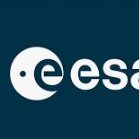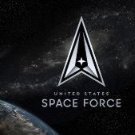Members Can Post Anonymously On This Site
Ariane 6 first liftoff
-
Similar Topics
-
By NASA
Credit: NASA NASA is marking progress in strengthening the agency’s small business partnerships, supply chain resiliency, and domestic space manufacturing capabilities.
Under the agency’s enhanced Mentor-Protégé Program, NASA has announced the first Mentor-Protégé Agreement between L3Harris Technologies, a NASA large prime contractor, and Parametric Machining, Inc., a veteran-owned small business.
This agreement will help advance NASA’s mission by fostering innovation and reinforcing the agency’s supply chain. As NASA continues to advance the Artemis campaign, deep space exploration, and aeronautics research, partnerships like this are essential in securing a resilient and efficient supplier base.
“We are excited to facilitate the first agreement under the newly enhanced NASA Mentor-Protégé Program,” said Dwight Deneal, assistant administrator for NASA’s Office of Small Business Programs. “This agreement, and the many that will follow, promote domestic ingenuity and manufacturing and provide opportunities for small businesses to grow and thrive within NASA’s industrial base.”
Through Mentor-Protégé Agreements, large prime contractors serve as mentors, offering technical and business development assistance to small business protégés. This collaboration not only enhances protégés’ capabilities but also provides mentors with a stronger, more reliable subcontracting base, enabling them to fill their supply chain gaps. Additionally, protégés gain potential prime and subcontract opportunities, enhanced technical capabilities, technical training, and long-term business growth.
Relaunched in November 2024, the merit-based NASA Mentor-Protégé Program is designed to bolster small business development while strengthening NASA’s supply chain and industry base. By focusing on a targeted set of North American Industry Classification System codes, including research and development and aerospace manufacturing, NASA ensures that participating small businesses are well-positioned to contribute to long-term mission objectives.
The agreement between L3Harris Technologies and Parametric Machining, Inc. demonstrates the value of NASA’s revamped Mentor-Protégé Program. NASA is actively accepting new Mentor-Protégé Agreements and encourages large prime contractors and small businesses to explore the benefits of forming partnerships under the program. Participating in the Mentor-Protégé Program provides:
Enhanced manufacturing capabilities and subcontracting opportunities. Mentorship from experienced NASA prime contractors. Opportunities to advance competitiveness in government contracts. Access to technical assistance and business development support. A pathway for small businesses to integrate into NASA’s supply chain. L3Harris Technologies is a prime contractor at NASA’s Goddard Space Flight Center in Greenbelt, Maryland, supporting the Geostationary Extended Observations Imager Instrument Implementation contract. NASA Goddard also will serve as the administering center for this agreement.
For more information on NASA’s Mentor-Protégé Program and how to participate, visit:
https://www.nasa.gov/osbp/mentor-protege-program
-end-
Share
Details
Last Updated Apr 17, 2025 ContactTiernan P. Doyletiernan.doyle@nasa.govLocationNASA Headquarters Related Terms
Office of Small Business Programs (OSBP) View the full article
-
By Space Force
The Space Force releases the Space Warfighting framework, outlining the service's vision for achieving and maintaining space superiority while ensuring the long-term safety and sustainability of the space domain.
View the full article
-
By Space Force
The Space Force released the Space Warfighting framework, outlining the service's vision for achieving and maintaining space superiority while ensuring the long-term safety and sustainability of the space domain.
View the full article
-
By European Space Agency
With the launch of ESA’s Biomass satellite scheduled for 29 April, preparations at Europe’s Spaceport in Kourou, French Guiana, have reached a key milestone. The satellite has now been sealed inside the protective fairing of the Vega-C rocket – now hidden from view, the satellite is almost ready for its journey into space.
View the full article
-
By NASA
Researchers from NASA’s Jet Propulsion Laboratory in Southern California, private companies, and academic institutions are developing the first space-based quantum sensor for measuring gravity. Supported by NASA’s Earth Science Technology Office (ESTO), this mission will mark a first for quantum sensing and will pave the way for groundbreaking observations of everything from petroleum reserves to global supplies of fresh water.
A map of Earth’s gravity. Red indicates areas of the world that exert greater gravitational pull, while blue indicates areas that exert less. A science-grade quantum gravity gradiometer could one day make maps like this with unprecedented accuracy. Image Credit: NASA Earth’s gravitational field is dynamic, changing each day as geologic processes redistribute mass across our planet’s surface. The greater the mass, the greater the gravity.
You wouldn’t notice these subtle changes in gravity as you go about your day, but with sensitive tools called gravity gradiometers, scientists can map the nuances of Earth’s gravitational field and correlate them to subterranean features like aquifers and mineral deposits. These gravity maps are essential for navigation, resource management, and national security.
“We could determine the mass of the Himalayas using atoms,” said Jason Hyon, chief technologist for Earth Science at JPL and director of JPL’s Quantum Space Innovation Center. Hyon and colleagues laid out the concepts behind their Quantum Gravity Gradiometer Pathfinder (QGGPf) instrument in a recent paper in EPJ Quantum Technology.
Gravity gradiometers track how fast an object in one location falls compared to an object falling just a short distance away. The difference in acceleration between these two free-falling objects, also known as test masses, corresponds to differences in gravitational strength. Test masses fall faster where gravity is stronger.
QGGPf will use two clouds of ultra-cold rubidium atoms as test masses. Cooled to a temperature near absolute zero, the particles in these clouds behave like waves. The quantum gravity gradiometer will measure the difference in acceleration between these matter waves to locate gravitational anomalies.
Using clouds of ultra-cold atoms as test masses is ideal for ensuring that space-based gravity measurements remain accurate over long periods of time, explained Sheng-wey Chiow, an experimental physicist at JPL. “With atoms, I can guarantee that every measurement will be the same. We are less sensitive to environmental effects.”
Using atoms as test masses also makes it possible to measure gravity with a compact instrument aboard a single spacecraft. QGGPf will be around 0.3 cubic yards (0.25 cubic meters) in volume and weigh only about 275 pounds (125 kilograms), smaller and lighter than traditional space-based gravity instruments.
Quantum sensors also have the potential for increased sensitivity. By some estimates, a science-grade quantum gravity gradiometer instrument could be as much as ten times more sensitive at measuring gravity than classical sensors.
The main purpose of this technology validation mission, scheduled to launch near the end of the decade, will be to test a collection of novel technologies for manipulating interactions between light and matter at the atomic scale.
“No one has tried to fly one of these instruments yet,” said Ben Stray, a postdoctoral researcher at JPL. “We need to fly it so that we can figure out how well it will operate, and that will allow us to not only advance the quantum gravity gradiometer, but also quantum technology in general.”
This technology development project involves significant collaborations between NASA and small businesses. The team at JPL is working with AOSense and Infleqtion to advance the sensor head technology, while NASA’s Goddard Space Flight Center in Greenbelt, Maryland is working with Vector Atomic to advance the laser optical system.
Ultimately, the innovations achieved during this pathfinder mission could enhance our ability to study Earth, and our ability to understand distant planets and the role gravity plays in shaping the cosmos. “The QGGPf instrument will lead to planetary science applications and fundamental physics applications,” said Hyon.
To learn more about ESTO visit: https://esto.nasa.gov
Share
Details
Last Updated Apr 15, 2025 Editor NASA Science Editorial Team Contact Gage Taylor gage.taylor@nasa.gov Location NASA Goddard Space Flight Center Related Terms
Science-enabling Technology Earth Science Technology Office Technology Highlights Explore More
5 min read Atomic Layer Processing Coating Techniques Enable Missions to See Further into the Ultraviolet
Article
4 weeks ago
4 min read Novel Metasurface Optical Element Could Shed New Light on Atmospheric Aerosols
Article
1 month ago
5 min read Ultra-low-noise Infrared Detectors for Exoplanet Imaging
Article
2 months ago
View the full article
-
-
Check out these Videos




Recommended Posts
Join the conversation
You can post now and register later. If you have an account, sign in now to post with your account.
Note: Your post will require moderator approval before it will be visible.